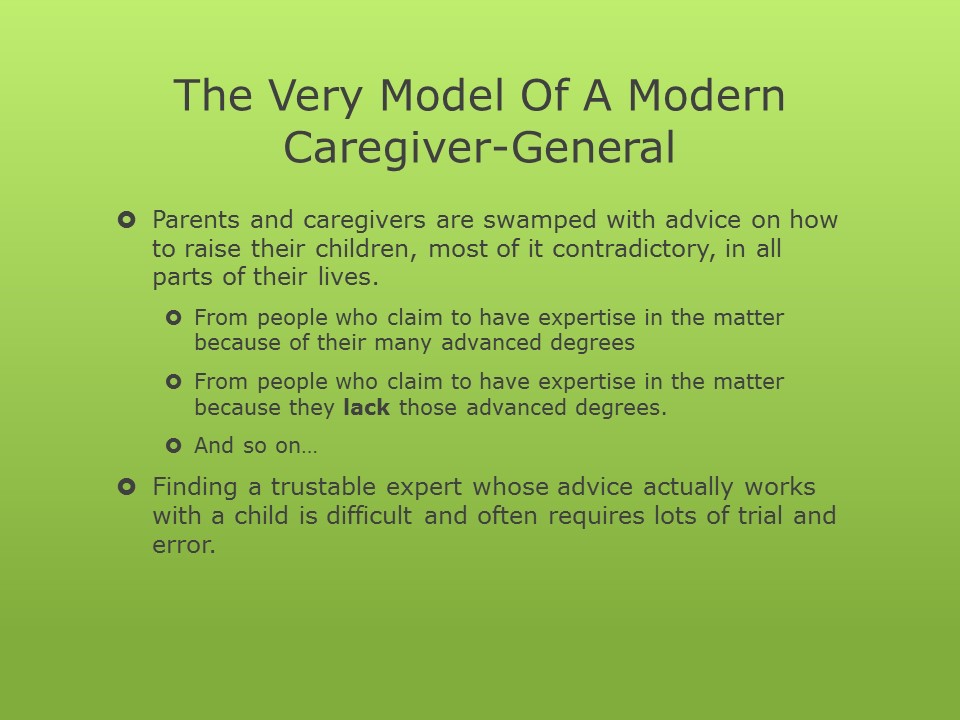
Parents and caregivers are beset with a dizzying amount of advice and expertise prclaiming itself the One True Path of parenting. Looking at bookstores and library shelves shows off more than a few authors and characters talking about all sorts of children.
It's possible that one of these experts, in the books, or outside of them, actually understands the child in question well and is able to provide useful advice, but it's much more likely that a caregiver will have to spend a lot of time, trial, and error with experts who don't work with their child before finding someone that actually does.
Things get more complicated because some of these experts proclaim they are right because they have advanced degrees and lots of experience in the field of child care, and others proclaim their expertise because they have no advanced degrees at all or experience, but what they did for their children worked, and is therefore universally applicable to all children.
Combine this with the time crunch that many parents are under and the fact that children don't age backwards, and finding a trusted expert that works in a short amount of time becomes a high-stress affair.
An Expert Is You
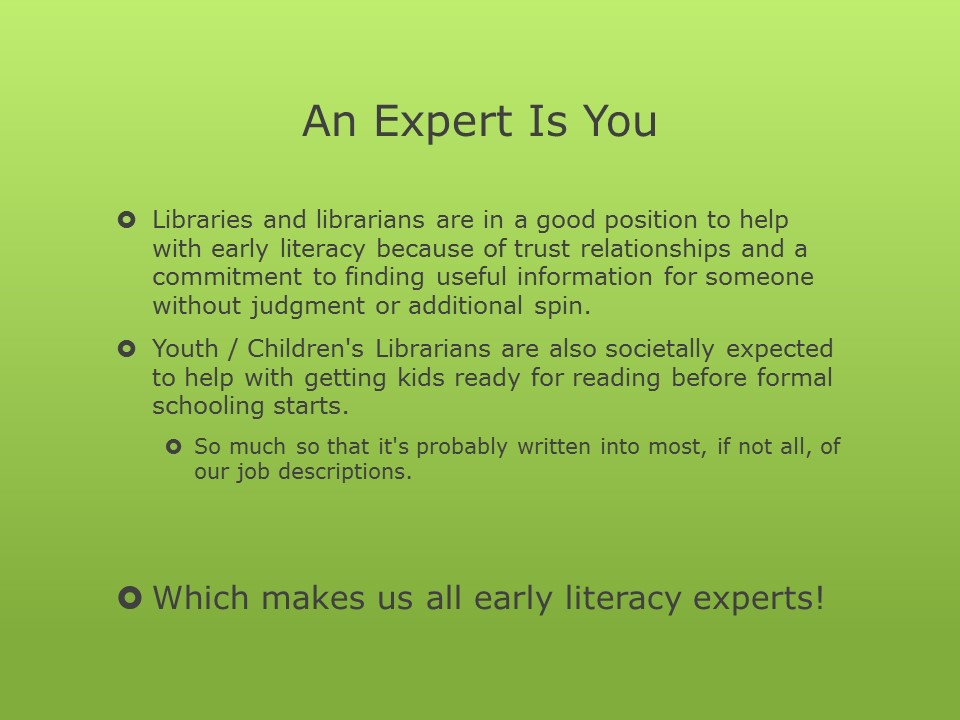
The good thing is, those parents already have an expert on hand that can help them - you, the youth person.
When it comes to trustworthy things and institutions, public libararies are usually near the top of the list. It might have to do with the commitment to giving accurate, unbiased information, the willingness to let anyone come in and use the resources we have available, or some other aspect, but people trust public libraries a lot.
You can take advantage of this trust and your own knowledge to become an expert on early literacy, with the added benefit that caregivers and parents in your programs will be very likely to listen to you and take your advice. Great power, great responsibility, and all that.
No, really. You're already an expert on these matters, even if you're not sure you are.
Who, Me?
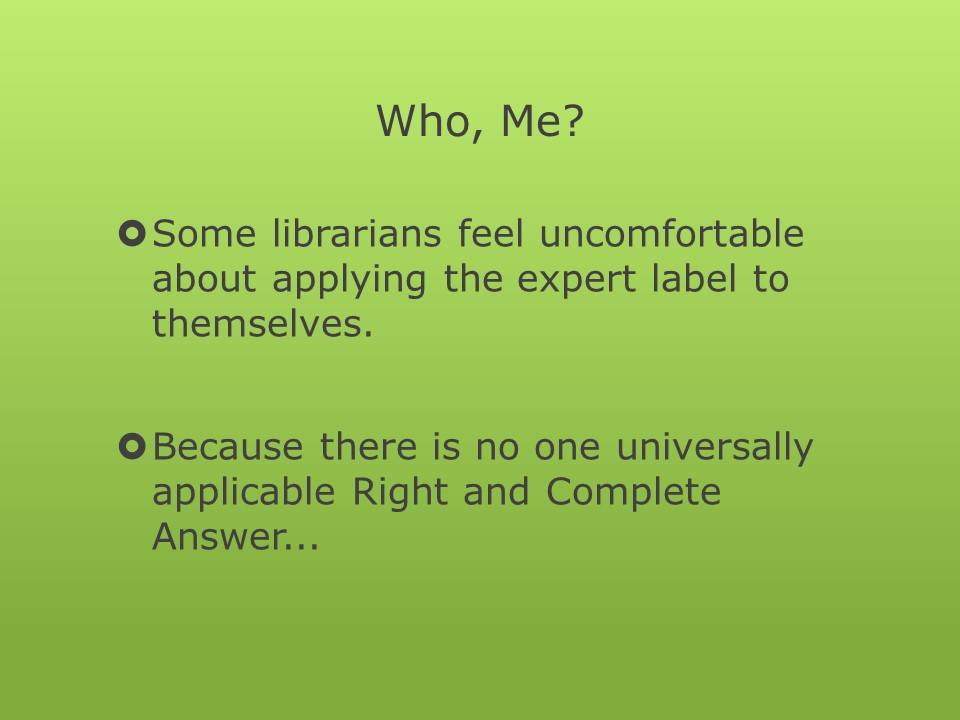
Many librarians and library workers are uncomfortable applying the expert labels to themselves. Library school teaches students that there is no such thing as a universally Right and Complete Answer that's more complex than a simple fact-check. Even if those answers existed, many of the people coming into the library don't have enough time to wait for the research and compilation of the information into a useful answer for the person asking the question.
Because there isn't necessarily a right and quick answer, library workers can give degrees of confidence in their answers. This should be enough, but often times, it isn't.
Yes, You.
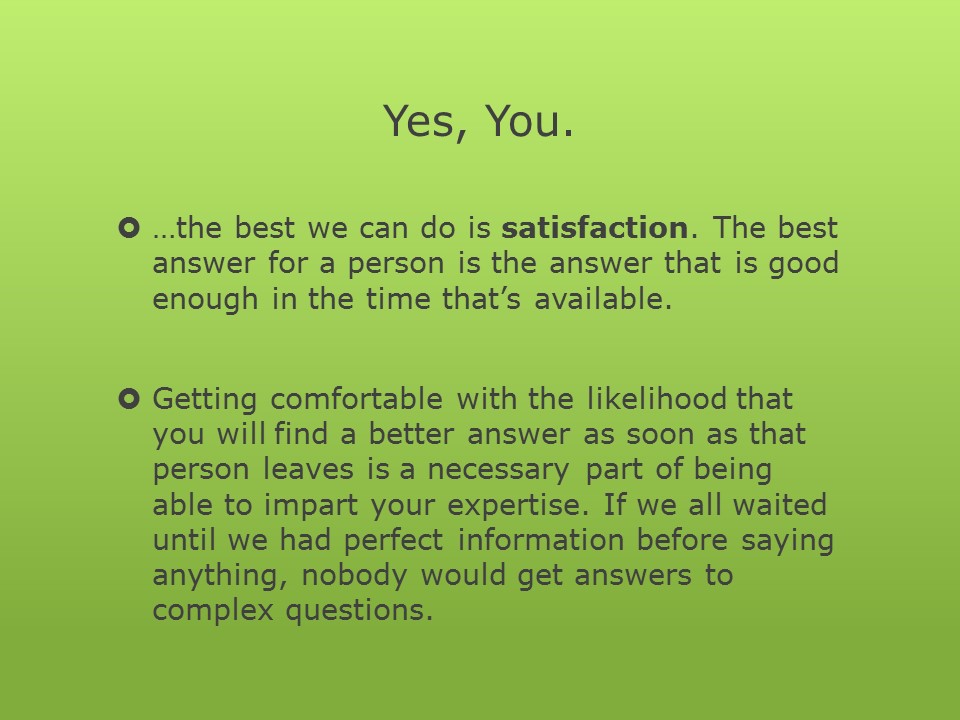
Truthfully, the best that anyone is ever going to get is to have an answer that's good enough for them, for the time that they have available. Satisfaction is a good goal to shoot for, especially when it comes to children, who are unique and interesting creatures unto themselves, defying the idea that any sort of solution will work for all of them.
Getting comfortable with the idea that a better answer will arrive right after the person leaves is an important part of building the confidence that will be needed to impart expertise - give the best answer at the time you have, and if something better appears afterward, be ready to tell that if they come back or to the next person that comes in with the same question. Or just mention it in the next week of Story Time.
Couldn't Be
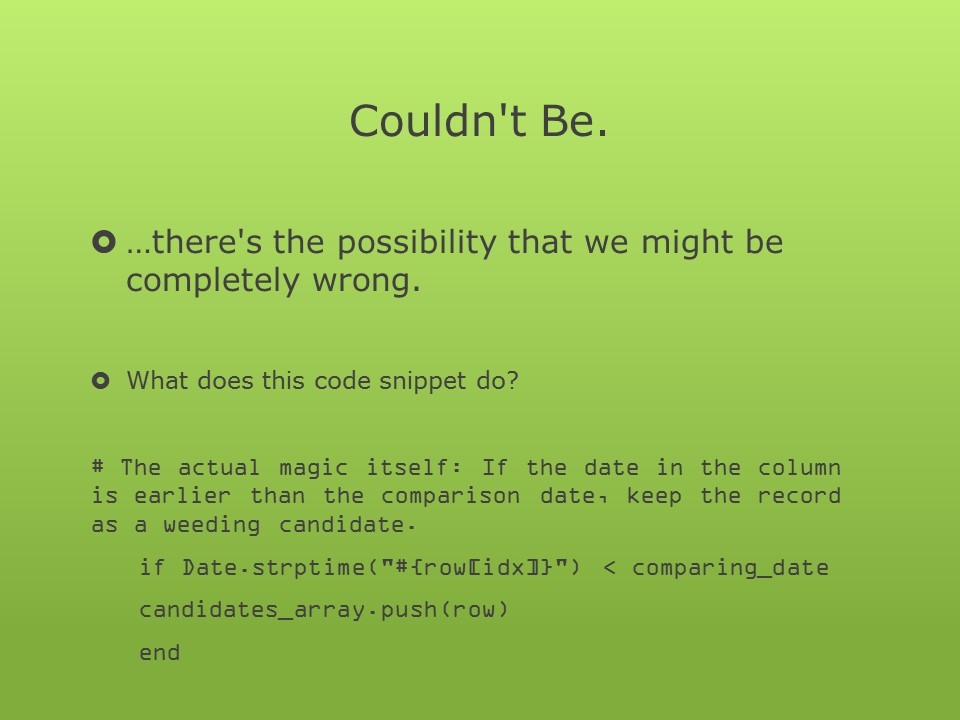
The other possibility is that a library worker could be completely, utterly, totally wrong.
Take a look at this code snippet:
# The actual magic itself: If the date in the column is earlier than the comparison date, keep the record as a weeding candidate.
if Date.strptime("#{row[idx]}") < comparing_date
candidates_array.push(row)
end
What do you think this code snippet does?
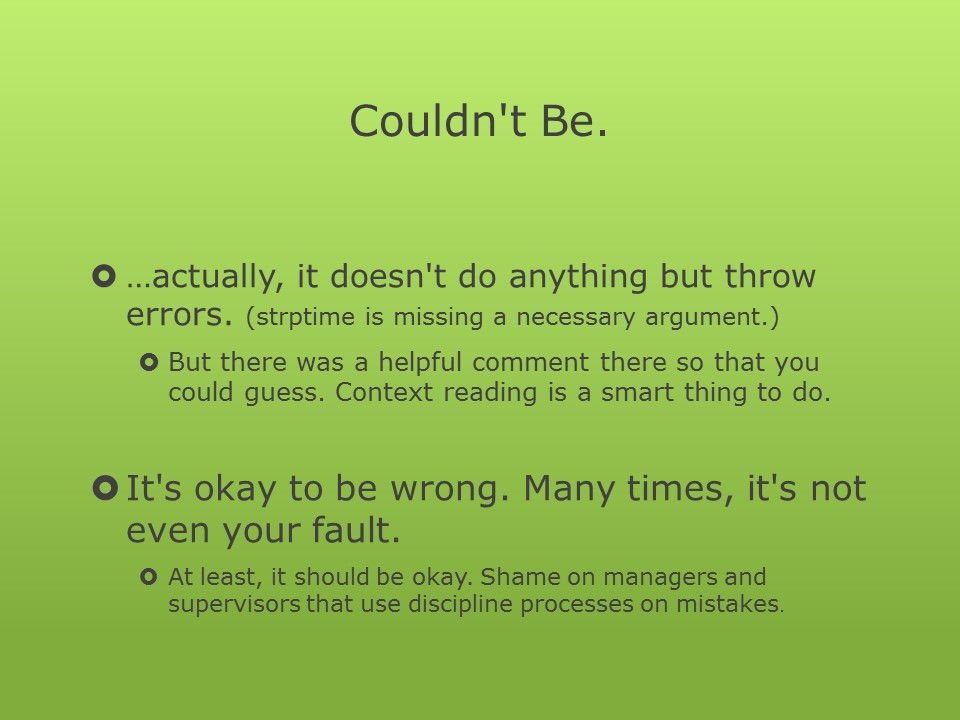
Actually, as it turns out, that code block doesn't do anything. (Other than, perhaps, throwing an error or two.)
If you're familiar with code and with the language involved (Ruby), you might spot that the strptime function was missing a necessary argument to make the code block work.
If you were talking to someone about this code block, and you didn't have an idea of what the code did, the comment that was present would have been a good guide to crib off of. That the code doesn't actually work isn't your fault.
It's okay to be wrong. It should always be okay to be wrong, if you being wrong is something that happens in good faith and that you're giving them the best answer that you can.
Should a manager or supervisor give you grief, or worse, formal discipline, just because you were wrong about something, shame on them forever and always. Having been on the receiving end of that kind of discipline, it is quite possibly the worst thing that a manager can do to someone they supervise.
Ahem.
You Already Have What It Takes
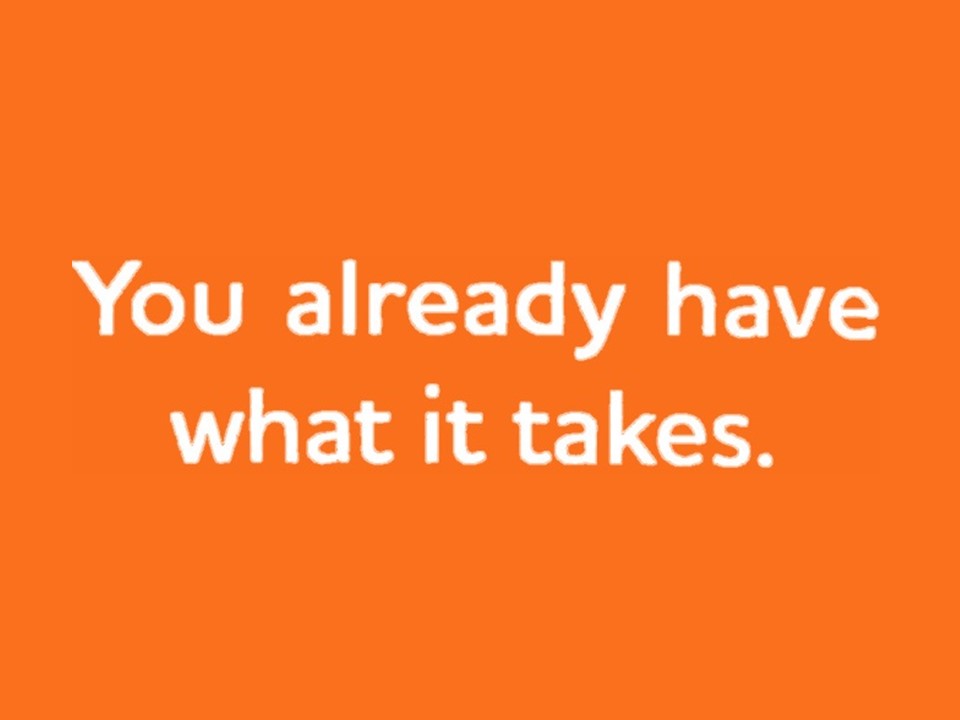
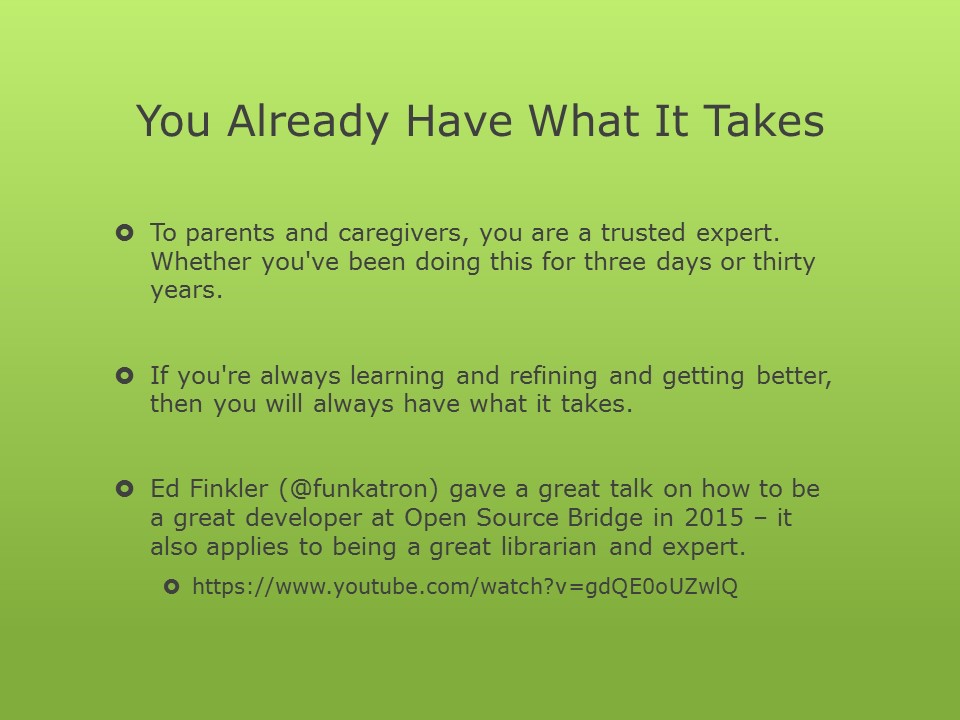
No, really. You are an expert, so you can do this.
Parents and caregivers already see you as a trustworthy expert, whether you have been in your position for three days or thirty years. If you have a firm commitment to always be learning and improving and refining your expertise into something better, there's no reason for you to feel like you're lacking what you need to be an expert.
There's a great talk by Ed Finkler (@funkatron on indieweb.social) gave a great talk at the Open Source Bridge conference in 02015 about the things that make a great software developer. You can substitute "librarian" or "library" worker everywhere he says or talks about "developer", and it all still applies. It's a great talk.